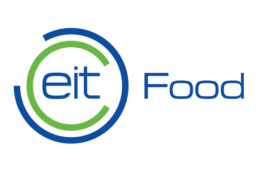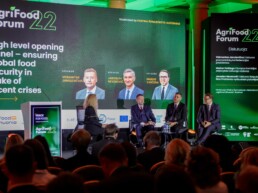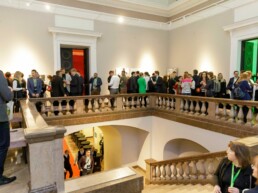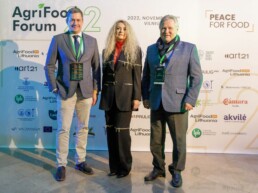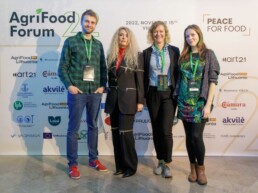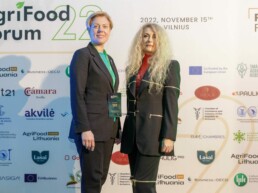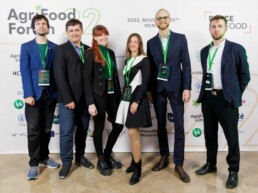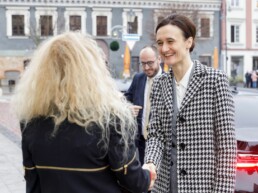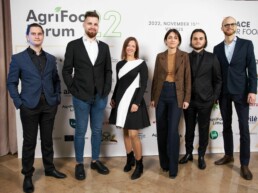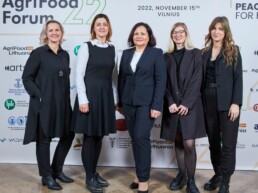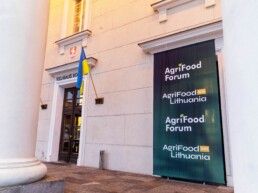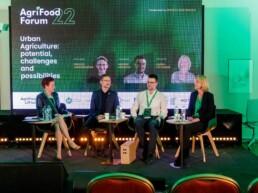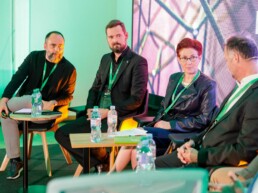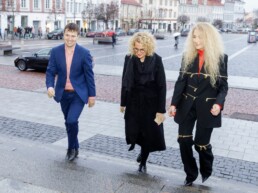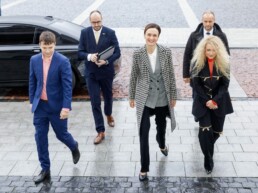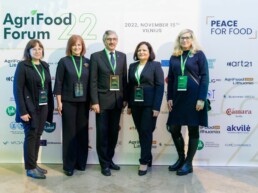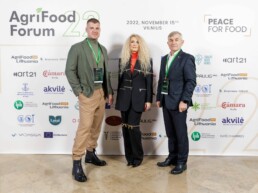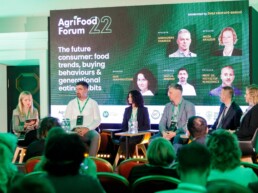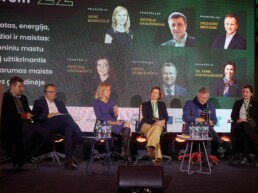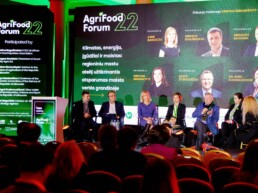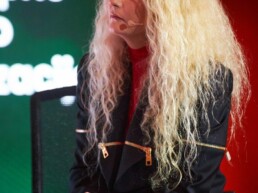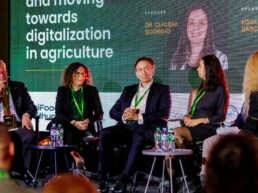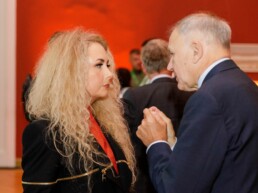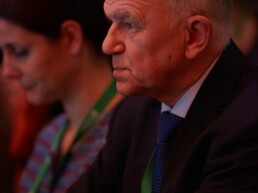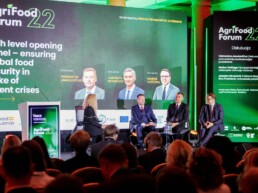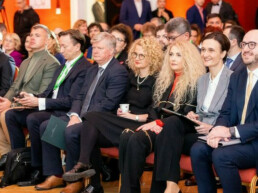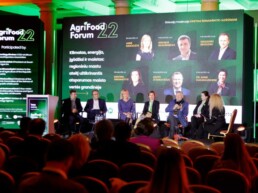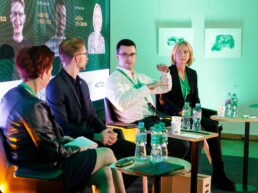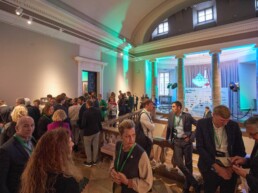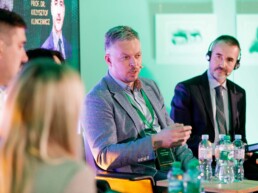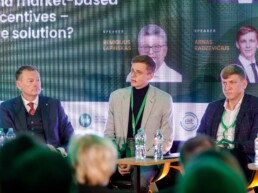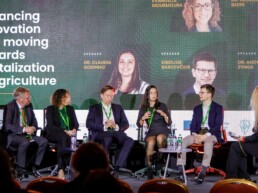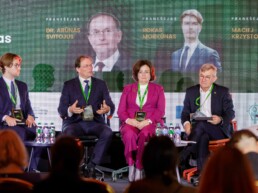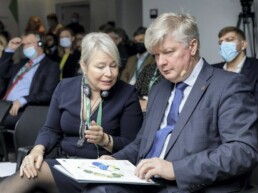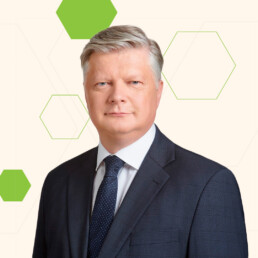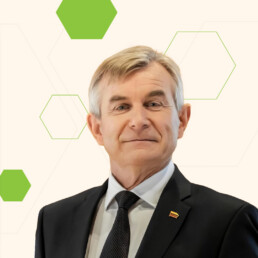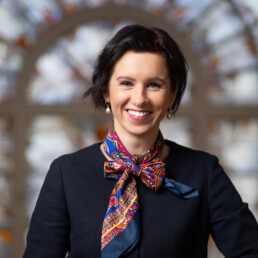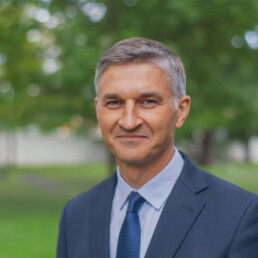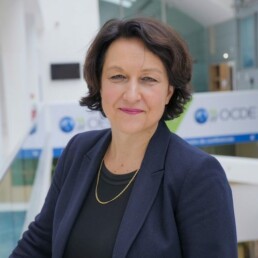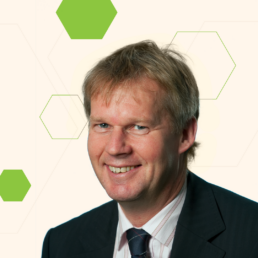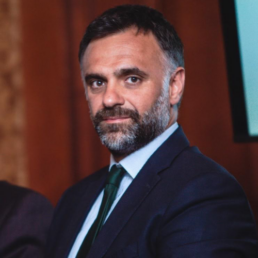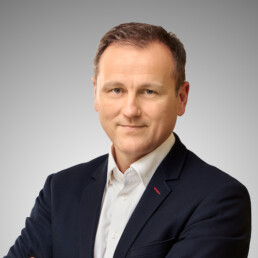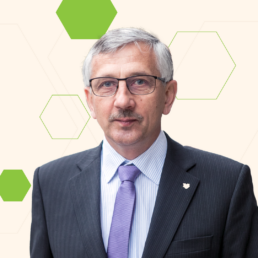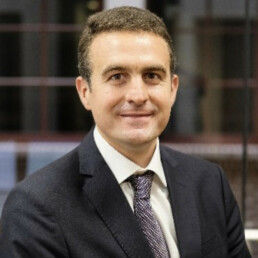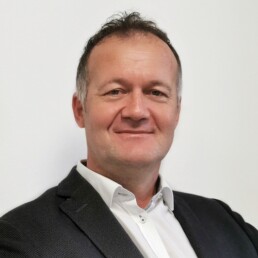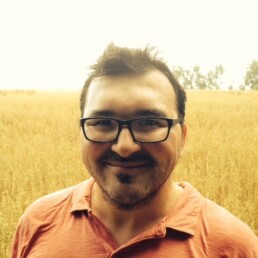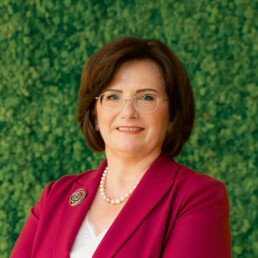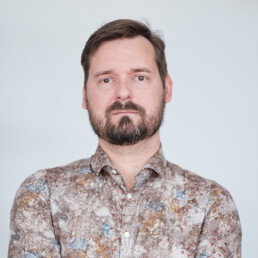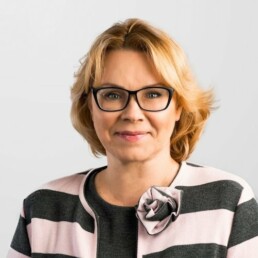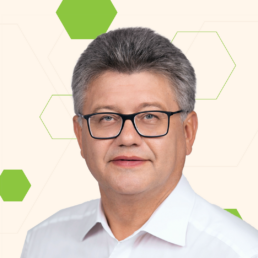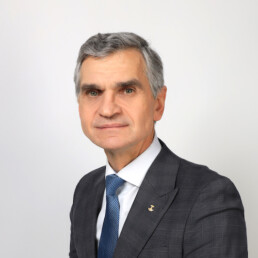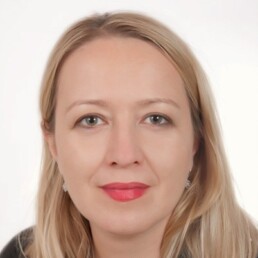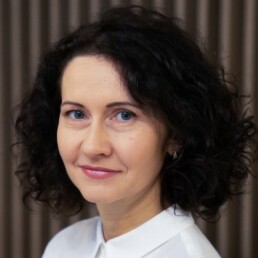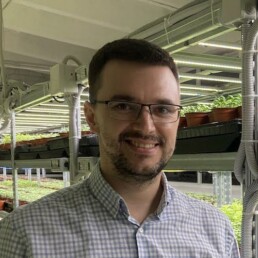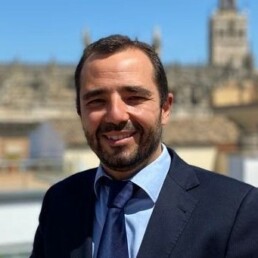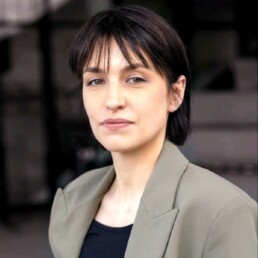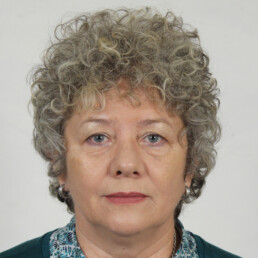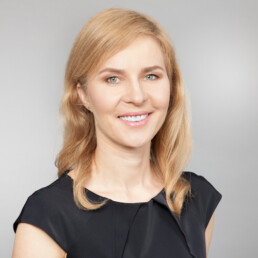Selection of the theme
In response to the global, multi-faceted crisis in the agri-food sector, AgriFood Lithuania is organizing, together with BIAC, the largest AgriFood Forum in the Baltic States on the theme of “Peace for Food”. This event is also an expression of support for the Business at OECD initiative with the same name Peace for Food.
The issue is particularly relevant in Baltic States as the agri-food sector accounts for around 7% GDP in each Baltics State economy, Ukraine is an important import partner for food sector companies, and the countrys overall inflation rate is one of the highest in the EU. The stagnation of agrifood companies would have a serious negative impact on the growth of other sectors and the unemployment rate (especially in regions). Thus, this Forum will aim to invite national and international stakeholders for a discussion and encourage the preparation of an action plan (including joint commitments of the most important actors in the sector), which would ensure the availability of affordable quality food for everyone without compromising the obligations for sustainability. Such commitments will be based on healthier, fairer, more sustainable, and resilient food systems.
The Forum will take place two weeks after the OECD ministerial meeting in Paris dedicated to the topic of Building Sustainable Agriculture and Food Systems in a Changing Environment: Shared Challenges, Transformative Solutions. AgriFood Forum will aim to review policy papers published earlier as well as the results of the ministerial meeting. The Forum will also offer additional recommendations that could help to solve the current challenges of the food system, and will later be presented to the OECD members. They should also be taken into consideration at the high-level follow-up meeting in Istanbul, which will be organized in 2023.
Empowered potential of E-DIHs:
As an additional response to the global multi-layered crisis in the agrifood sector and a positive boost to the “Peace for Food” campaign, the AgriFood Forum will offer an additional and yet untapped effective instrument – the unification of E-DIHs for a common, unified goal. This year, E-DIHs started operating in different European countries and even 35 of them specialize in the agrifood sector. During the Agrifood Forum 2022 these E-DIHs will gather together in one place for the first time to discuss and negotiate on cross-border and cross-sectoral cooperation and a joint commitment to work together by creating a strategic alliance and defining priorities for a common roadmap.
This alliance will create a possibility to enable a unique operation model of Europe’s strongest digital innovation hubs, uniting the greatest competences and values that can be offered to the market. In this way, this new cooperation platform will allow the creation of a common ecosystem of E-DIHs, where active cooperation, exchange of technologies and investments will take place. This will result in the expanded direction of activities of the actors who can have the greatest influence in the digital transformation from the national to the European level.
Foreseen results of the Forum:
Different high-level actors of the agrifood ecosystem and related sectors are included in the discussion on the existing multi-layered crises and the necessary measures and commitments to solve them.
A package of recommendations prepared during the forum will be handed over to Business at OECD BIAC and supplement the results of the ministerial meeting.
Significantly increased public dialogue on the critical role of food systems in national security and the measures necessary to protect society, farms, and agrifood companies.
Context of the Peace for Food Initiative
The current state of global affairs could be defined as a multi-layered crisis that is creating a shock to food demand and supply. Climate change, the pandemic and conflicts have significantly overloaded food systems and created one of the worst food crises in history. It has become urgent to move from discussion to action if global food systems are to feed the world, sustain the environment, and enable livelihoods across the food supply chain. Russia’s invasion of Ukraine has already severely disrupted global food markets, causing negative consequences for global grain supplies in the short term. Disrupting natural gas and fertilizer markets, as well as the production and spread of agricultural technology, will also have negative impacts on producers in the medium- to long-term. In this context, the theme of Building Sustainable Agriculture and Food Systems in a Changing Environment: Shared Challenges, Transformative Solutions, was selected for the OECD Meeting of Agriculture Ministers (Ministerial) on November 3-4, 2022.
Objectives of the Peace for Food Initiative
The Peace for Food Initiative aims to bring international attention and global stakeholders together to highlight the current situation in global food markets. The initiative will enable businesses to proactively contribute to the OECD work on agriculture and will highlight the business commitment to reaching global objectives, including agriculture sustainability and innovation. Peace for Food has three main goals:
-
Inform the OECD and policymakers on the current challenges businesses face in wake of recent food price hikes, particularly in developing countries, what challenges it poses for businesses in developed countries, and showcase how businesses tackle these challenges;
-
Discuss policy actions to calm agricultural markets in the short term, and identify policy recommendations for making our food systems more resilient and sustainable in the long term, boosting agriculture productivity, innovation and how it can contribute to evidence-based policy-making;
-
Explore the role of international collaboration, in particular through OECD and G20 initiatives can play in stabilizing global food markets in times of price inflation and building momentum for the upcoming OECD Agriculture Ministerial, taking place on 3-4 November 2022.

News

Speakers
Prof. dr. Viktoras Pranckietis
Dr. Agnė Kudarauskienė
Andrius Pranckevičius
Mindaugas Snarskis
Gérald Audaz
Evangelia Mourmoura
Maciej Krzysztofowicz
Maurizio Tomalino
Alfredas Jonuška
Katarzyna Dyja
Marius Krutulis
Piotr Lipiec
Kristina Šermukšnytė-Alešiūnienė
Paulius Chockevičius
Agnė Bagočiūtė
*The list of speakers will be updated.

Agenda
09:00 - 09:30 Opening remarks
Viktorija Čmilytė-Nielsen | Speaker of the Seimas of the Republic of Lithuania
Kęstutis Navickas | Minister of Agriculture of the Republic of Lithuania
Aušrinė Armonaitė | Minister of the Economy and Innovation of the Republic of Lithuania
9:30-9:45 Opening presentation
Marion Jansen | Director of the Trade and Agriculture Directorate at OECD
09:45 - 10:45 High level opening panel – Ensuring global food security in wake of recent crises
Vidmantas Janulevičius | President of the Lithuanian Confederation of Industrialists
Jaroslav Neverovič | Chief Adviser to the President of the Republic of Lithuania
Marius Vaščega | Head of the European Commission’s Representation in Lithuania
Moderated by Kristina Šermukšnytė-Alešiūnienė | Director at AgriFood Lithuania
10:45 – 11:00 Keynote presentation
Dr. Andy Zynga | CEO at EIT Food
11:00 - 11:15 Keynote presentation: "Army where we belong. No protocols era."
Augustas Alešiūnas | AgTech Business Angel & Owner of ART21
11:15 - 11:35 Coffee break
11:35 - 12:45 Panel 1A – Enhancing innovation and moving towards digitalization in agriculture
Intervention on the topic: fire-starter: Dr. George Beers | Coordinator at SmartAgriHubs, Wageningen University & Research
Evangelia Mourmoura | Digitalisation Team leader of DG Agriculture and Rural Development at European Commission
Dr. George Beers | Coordinator at SmartAgriHubs, Wageningen University & Research
Dr. Claudia Godinho | Portuguese EIT FOOD Hub
Egidijus Barcevčius | Research Director at PPMi
Dr. Andy Zynga | CEO at EIT Food
Moderated by Kristina Šermukšnytė-Alešiūnienė | Director at AgriFood Lithuania
12:45 - 14:15 Lunch break
14:15 - 15:30 Panel 2A – Towards transformative solutions for sustainable agriculture and food systems
Intervention on the topic: fire-starter: Maciej Krzysztofowicz | European Commission Joint
Research Centre
Prof. dr. Viktoras Pranckietis | Chairman of the Rural Affairs Committee of the Seimas of the Republic of Lithuania
Andrius Pranckevičius | Deputy Chairman at Linas Agro Group, CEO at AB Kauno Grūdai, Chairman at PF Kekava
Astrida Miceikienė | Chancellor of Agriculture Academy at Vytautas Magnus university
Dr. Arūnas Svitojus | Chairman of the Chamber of Agriculture of the Republic of Lithuania
Rokas Morkūnas | Policy Manager of Business at OECD (BIAC)
Maciej Krzysztofowicz | European Commission Joint Research Centre
Moderated by Kristina Šermukšnytė-Alešiūnienė | Director at AgriFood Lithuania
15:30 - 16:45 Panel discussion 3A Climate-Energy-Skills-Food: Future-Proofing Resilience in food value chain on regional scale
Intervention on the topic: fire-starter: Kristina Simonaitytė | Advisor to the Minister of Agriculture of the Republic of Lithuania
Giedrius Bagušinskas | CEO at Lithuanian Food Exporters Association
Grzegorz Brodziak | President at GoodValley Agro S.A.
Kristina Simonaitytė | Advisor to the Minister of Agriculture of the Republic of Lithuania
Kazys Starkevičius | Chairman of the Economic Committee of the Seimas of the Republic of Lithuania
Dr. Agnė Kudarauskienė | Vice-minister of the Education, Science and Sport of the Republic of Lithuania
Agnė Bagočiūtė | Advisor at Lithuanian Energy Agency
Moderated by Kristina Šermukšnytė-Alešiūnienė | Director at AgriFood Lithuania
16:45 - 17:00 Coffee Break
17:00 - 17:50 4A: Opportunities for SMEs, industry and farmers.
Intervention on the topic: fire-starter: Marco Francini | Head of Office Regional EIB Group Office for the Baltic States
Grigoris Chatzikostas | Vice President of Business Development at FoodScale Hub
Thomas Gitsoudis | Senior Innovation Officer at AgriFood Lithuania
17:50 - 18:00 Concluding session
Kristina Šermukšnytė-Alešiūnienė | Director at AgriFood Lithuania
11:35 - 12:45 Panel 1B – Carbon farming and market-based incentives – the solution?
Intervention on the topic: fire-starter: Alejandro Trenor | Co-founder and CFO at Soil Capital
Donatas Dailidė | CEO at Dojus Group
Raimundas Juknevičius | Chairman at Lithuanian Farmers’ Union
Remigijus Lapinskas | Director at Green Policy Institute
Arnas Radzevičius | Head of Agro Precision Technology Division at Agrokoncernas
Vidmantas Janulevičius | President of the Lithuanian Confederation of Industrialists
Moderated by Živilė Kropaitė-Basiulė
12:45 - 14:15 Lunch break
14:15 - 15:30 Panel 2B – The Future Consumer: Food Trends, Buying Behaviours & Generational Eating Habits
Intervention on the topic: fire-starter: Prof. dr. Krzysztof Klincewicz | Professor at University of Warsaw
Mindaugas Snarskis | CEO at Vikonda Group
Milda Kraużlis | RIS Programme Manager at EIT FOOD CLC North-East
Ieva Gudanavičienė | Nutrition Officer at Ministry of Health of Lithuania
Matija Bumbak | Co-founder of Oyster 22
Prof. dr. Krzysztof Klincewicz | Professor at University of Warsaw
Moderated by Živilė Kropaitė-Basiulė
15:30 - 16:45 Panel 3B E-DIHs - Expectations and opportunities for collaboration
Powered by EDIH4IAE
Intervention on the topic: fire-starter: Grigoris Chatzikostas | Vice President of Business Development at FoodScale Hub
Mantas Vilys | Director at Lithuanian Innovation Centre
Łukasz Łowiński | Coordinator of E-DIH Poland, Poznań Institute of Technology
Daniel Copot | Director of AgriFood DIH (Slovenia)
Augustas Alešiūnas | AgTech Business Angel & Owner of ART21
Orsolya Szaplonczay | Managing Director at Innoskart DIH
Simon Maas | Chairman of the Smart Sensors 4 Agri-food S3-partnership (European Cluster Partnership of the Year 2022)
Moderated by Grigoris Chatzikostas | Vice President of Business Development at FoodScale Hub
16:45 - 17:00 Coffee Break
17:00 - 17:50 Panel discussion 4B: Urban Agriculture: potential, challenges and possibilities
Paulius Chockevičius | Founder of Urbanbee.lt
Marius Krutulis | Founder & CEO at Daržulis
Aušra Sičiūnienė | Vilnius City Municipality
Moderated by Orsolya Szaplonczay | Managing Director at Innoskart DIH
17:50 - 18:00 Concluding session MAIN hall A
11:40 - 12:00 Opening of session Bio Food Consortium Final Conference
Gérald Audaz | Team Leader of the Sector ‘Economic Development’ in the Directorate of the Eastern Neighbourhood in the DG NEAR
Laura Velasco | Senior Project Officer at Eurochambres
Alfredas Jonuška | CEO at Šiauliai Chamber of Commerce, Industry and Crafts
Carmen Fernández | Project Manager at the Chamber of Commerce of Seville
12:00 - 12:30 The New Common EU Agricultural Policy for 2023-2027
Katarzyna Dyja | Policy Analyst of DG Agri at European Commission
12:30 - 13:00 EU Market Access Rules for Agri-food Products
Luc Van Looveren | Senior advisor EU-relations at Voka Chamber of Commerce and Industry
13:00 - 14:15 Lunch
14:15 - 14:45 How to Improve the Competitiveness of the EaP Operators of the Bio–organic Food Sector
África Romero | Expert of Food and Beverage Industries
Maurizio Tomalino | President of Consorzio Italasia Industrial Relations & Managing Director of Europe Link Business Agency S.r.l.
14:45 - 15:15 Let's Not Waste Food – Five Scenarios from Youth Perspective
Dr. Alvija Šalaševičienė | Head of Food Institute at Kaunas Technology University
15:15 - 15:30 EU4BCC Bio Food Consortium – Results Achieved
Carmen Fernández | Project Manager at the Chamber of Commerce of Seville
15:30 - 16:30 Get to Know Some Projects – Panel Discussion
Tatyana Gicheva | Project Manager at Dobrich CCI / “Match&Grow”, “B2B Matching”
Piotr Lipiec | Project Manager at Polish CCI / “B2BioFOOD”, “B2B Matching”
Xenia Martînov | Project Manager at Moldova Organic Value Chain Alliance MOVCA / “Into the Sun”, “B2B Matching”
Luc Van Looveren | Senior advisor EU-relations at Voka Chamber of Commerce and Industry / “Supporting organic agri-food production and export in Zaporizhzhia region, Ukraine”, “Twinning”
Moderated by Pablo Morales | Coordinator for International Projects at the Chamber of Commerce of Seville
16:30 - 16:45 Conclusions and Closing Remarks
Pablo Morales | Coordinator for International Projects at the Chamber of Commerce of Seville
Daiva Jonuškienė | Project Manager at Siauliai CCI
16:45 - 17:00 Coffee Break
17:00 - 17:45 Change Towards Climate-Smart Agriculture - challenges and obstacles
Tomas Orlickas | Deputy Director at National Payment Agency
Diana Šalkauskienė | Project Manager at AgriFood Lithuania

